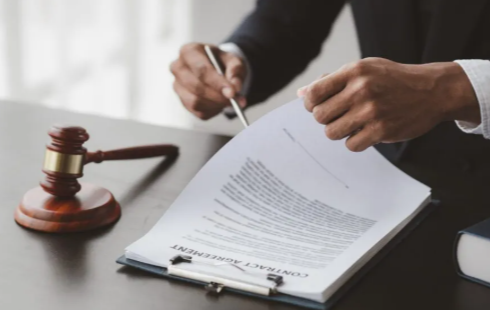Support Strategies After a Roadside Arrest
Getting arrested during a traffic stop transforms an already stressful situation into a legal emergency that requires immediate and strategic action. The shock of handcuffs, the confusion of Miranda rights, and the uncertainty of what comes next can leave you feeling overwhelmed and unprepared. However, the steps you take in the hours and days following your arrest can significantly impact the outcome of your case.
A roadside arrest often happens quickly, leaving little time for preparation or planning. One moment you’re pulled over for what seems like a routine traffic stop, and the next you’re being booked into jail facing serious charges. Whether the arrest involves suspected DUI, outstanding warrants, or other criminal allegations, having a clear support strategy becomes crucial for protecting your rights and building an effective defense.
The period immediately following an arrest is critical for several reasons. Evidence may be time-sensitive, witnesses’ memories fade quickly, and certain legal deadlines begin ticking immediately. Understanding how to mobilize support resources efficiently can make the difference between a favorable resolution and serious long-term consequences that affect your career, family, and future opportunities.
Secure Immediate Legal Representation
Your first and most important step after a roadside arrest involves obtaining qualified legal counsel. The constitutional right to an attorney exists for good reason—navigating the criminal justice system without professional guidance often leads to costly mistakes that could have been avoided.
Contact an experienced criminal defense attorney as soon as possible after your release or from jail if phone privileges allow. Many attorneys offer emergency contact numbers for situations exactly like this, understanding that arrests don’t happen during convenient business hours. The sooner you involve legal counsel, the sooner they can begin protecting your rights and investigating your case.
If you’re facing DUI charges specifically, seeking a specialized DUI attorney in Cle Elum, Washington or your local jurisdiction becomes even more critical. DUI cases involve complex scientific evidence, specialized field sobriety testing procedures, and technical legal defenses that require specific expertise to challenge effectively.
Don’t assume that a public defender will be automatically assigned to your case. Public defenders are typically only appointed for serious felony charges and after you’ve demonstrated financial inability to hire private counsel. For many misdemeanor cases, including first-time DUI arrests, you may need to secure your own representation.
When consulting with potential attorneys, ask about their experience with cases similar to yours, their success rates, and their approach to defense strategy. Many attorneys offer free initial consultations that allow you to evaluate whether they’re the right fit for your situation without additional financial commitment.
See also: The Impact of Market Events on XRP Price UK: An In-Depth Analysis
Manage Personal and Professional Obligations
A roadside arrest can disrupt your personal and professional life in ways that extend far beyond the legal consequences. Taking immediate steps to manage these obligations helps minimize the secondary effects of your arrest while you focus on building your defense.
Contact your employer as soon as possible if your arrest will affect your work schedule. Many people worry about informing their employer about legal troubles, but unexplained absences often create more problems than honest communication. If your job requires driving or security clearances, you may be legally obligated to report the arrest regardless.
Arrange for childcare, pet care, or other dependent care responsibilities that may have been disrupted by your arrest. Family members or trusted friends can often step in temporarily, but having a clear plan prevents additional stress and ensures your dependents are properly cared for during this difficult time.
If your arrest involved vehicle impoundment, contact the impound lot immediately to understand retrieval procedures and fees. Many jurisdictions impose daily storage fees that can quickly become expensive, and some require specific documentation or clearances before releasing the vehicle.
Check on any scheduled appointments, commitments, or travel plans that might be affected by court dates or legal restrictions. Some arrests involve travel restrictions or other conditions of release that could conflict with existing obligations.
Document Everything You Remember
Your memory of the events leading to your arrest represents crucial evidence that can support your defense. However, these memories can fade quickly or become contaminated by stress, media reports, or conversations with others. Creating a detailed written record as soon as possible helps preserve this important information.
Write down everything you can remember about the traffic stop, from the initial reason you were pulled over to the moment you were released from custody. Include details about the weather, lighting conditions, traffic patterns, and any witnesses who might have observed the incident.
Note the specific questions officers asked and how you responded. Record any field sobriety tests you were asked to perform, whether you consented to chemical testing, and your observations about the officers’ conduct throughout the encounter.
Document any medical conditions, medications, injuries, or other factors that might be relevant to your case. Some medical conditions can affect field sobriety test performance, while certain medications might influence breathalyzer results or other evidence.
If you took photos or videos during or after the incident, preserve these immediately. Back up digital files in multiple locations and avoid editing or altering them in any way that might compromise their evidentiary value.
Build Your Support Network
Facing criminal charges can be isolating and emotionally draining. Building a strong support network helps you manage the stress while ensuring you have practical assistance when needed. This network should include both professional resources and personal supporters who understand your situation.
Identify family members or close friends who can provide emotional support and practical assistance throughout the legal process. These individuals might help with transportation to court appearances, childcare during legal meetings, or simply provide someone to talk through your concerns and fears.
Consider joining support groups for individuals facing similar charges, particularly if your arrest involved DUI allegations. These groups provide valuable emotional support while offering practical advice from others who have navigated similar situations successfully.
Research counseling or therapy resources that can help you process the emotional impact of your arrest while developing coping strategies for the legal process ahead. Many attorneys can recommend mental health professionals who understand the unique stresses associated with criminal charges.
If your charges involve substance abuse allegations, proactively seeking treatment or counseling demonstrates responsibility and commitment to addressing underlying issues. Courts often view voluntary participation in treatment programs favorably when considering sentencing or plea negotiations.
Prepare for Financial Impact
Criminal charges often involve significant financial costs that extend beyond attorney fees and court fines. Planning for these expenses early helps prevent financial stress from compounding the challenges you’re already facing.
Budget for direct legal costs including attorney fees, court costs, and potential fines or restitution. Ask your attorney for a clear breakdown of expected costs and payment options. Many attorneys offer payment plans that spread costs over time rather than requiring large upfront payments.
Consider indirect costs such as increased insurance premiums, potential job loss, or transportation expenses if your license is suspended. Some charges result in mandatory insurance coverage increases that can cost thousands of dollars annually for several years.
If your arrest involved license suspension, research alternative transportation options including public transit, rideshare services, or assistance from family and friends. Budget for these additional transportation costs while your driving privileges are restricted.
Explore whether your employer offers legal assistance programs or whether your insurance policies include legal coverage for criminal charges. Some homeowner’s insurance policies or legal insurance plans provide coverage for certain types of criminal defense costs.
Moving Forward With Confidence
Being arrested during a traffic stop represents a serious challenge that requires immediate, strategic action to protect your rights and minimize long-term consequences. The support strategies you implement in the days following your arrest can significantly influence the outcome of your case and your ability to move forward with your life.
Remember that an arrest is not a conviction, and many cases result in reduced charges, alternative sentencing options, or even dismissal when handled properly. Working with qualified legal counsel while building strong personal and professional support systems gives you the best chance of achieving a favorable resolution.
Stay focused on the steps you can control while allowing your attorney to handle the legal complexities of your case. With proper support and strategic planning, you can navigate this challenging period and emerge with your future intact.




